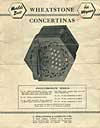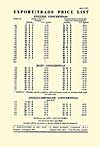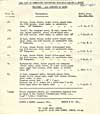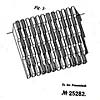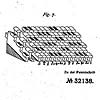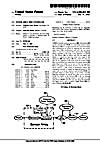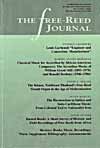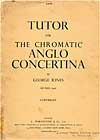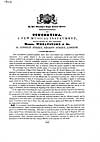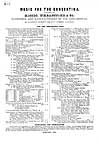Last updated 15 December 2004
Cumulative entries to last date: 172
What’s New Archives
for the Concertina Library, 2004
Directory
15 December 2004
-
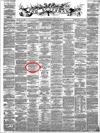 Earliest-Known Advertisement for the Duett Concertina (1854)
Earliest-Known Advertisement for the Duett Concertina (1854)
-
by C. Wheatstone & Co.
-
An early Edinburgh advertisement for the Duett system duet concertina, from late 1854.
The Scotsman (Edinburgh), Vol. 38 No. 3647, Wednesday, 20 December, 1854, page 1, column 3 (entire page).
“Concertinas at Fryer & Thomson’s, 7 and 11 South St Andrew Street.
THE DUET CONCERTINA.
In Mahogany (24 Keys), £1 11 6;
In Rosewood, Superior Finish (24 Do.), £2 2 0.
Instruction Books, 2s.”
-
Posted 15 December 2004
-
» read full document in pdf
-
 Historic Concertina Patents
Historic Concertina Patents
-
Directory
-
A portfolio of full copies of
nine historic concertina patents. Includes the
early Wheatstone English patents, Maccann's Duet patent, Jones's Anglo patent,
the Crane Duet patent, Kaspar Wicki's patent for the Wicki-Hayden system, and Brian
Hayden's much later patent for the same system. Includes:
C. Wheatstone 1829; C. Wheatstone 1844; Wm. Wheatstone 1861; Maccann 1884;
Jones 1885; Alsepti and Ballinger 1885; Butterfield 1896; Wicki 1896; Hayden 1986.
None of these patents has any current force, all have either lapsed or been abandoned.
-
Posted 15 December 2004
-
» go to directory
-
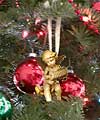 Christmas Music for Concertina
Christmas Music for Concertina
- by David Cornell
-
Christmas music arranged for Maccann Duet concertina. Includes
Coventry Carol (with comments), Have Yourself a Merry Little Christmas,
Joy to the World, and We Wish You a Merry Christmas.
- Posted 15 December 2004
-
» go to directory
22 November 2004
-
 The Concertina Man
The Concertina Man
-
Presented by Peter Day,
Produced by Neil Koenig
-
BBC programme on the history and music of the concertina,
focusing on its inventor Sir Charles Wheatstone as a somewhat belated
recognition of his bicentenary in 2002. In addition to the presenter, Peter Day,
the program features (in order of appearance)
Bob Gaskins, Brian Bowers, Margaret Birley, Stephen Chambers,
Frank James, Douglas Rogers, Sean Minnie, and Steve Dickinson. The program
was produced by Neil Koenig.
BBC World Service programme broadcast 07 September 2004.
-
Posted 22 November 2004
-
» read full article
27 September 2004
-
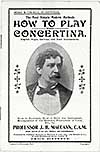 How to Play the Concertina
How to Play the Concertina
- by John Hill Maccann
-
A newly-discovered booklet, reliably dated to 1902.
The text of the document consists of two parts: (1) a
part of the "how to play" text from Maccann's earlier
publication The Concertinist's Guide (1888); and (2) an
interview with Professor Maccann reprinted from The Era
theatrical newspaper of London, issue of 25 January 1902.
In addition to the text,
the booklet contains some new photographs of Maccann,
including the first known photographs of him playing the concertina.
There is a sample program of a recital by Maccann, a list of phonograph
records for sale recorded by Maccann, and a catalogue of
some of Maccann's published music compositions.
This copy was discovered in the National Archives of
Australia, where it had been deposited for copyright registration.
- Posted 27 September 2004
-
» read article and full document
-
» read full document in pdf (medium quality)
-
» read full document in pdf (higher quality)
15 May 2004
01 March 2004
-
 The Wicki System—an 1896 Precursor of the Hayden System
The Wicki System—an 1896 Precursor of the Hayden System
-
by Robert Gaskins
-
The concertina keyboard system known today as the "Hayden" system,
which was independently discovered by Brian Hayden and patented by him in 1986,
had also been discovered and patented 90 years earlier by a Swiss inventor
named Kaspar Wicki. Wicki's 1896 Swiss patent (CH13329) is clear and unambiguous, including
a keyboard diagram labeled in standard musical notation.
-
Posted 01 March 2004
-
» read full article
-
 Tastatur für Musikinstrumente (1896)
Tastatur für Musikinstrumente (1896)
-
by Kaspar Wicki
-
Switzerland Patent Nr. CH13329, dated 30 Oktober 1896. 2 pages, 1
illustration. This patent describes a keyboard system identical to
the Hayden system which was independently re-discovered 90 years
later. “The keys or buttons … are arranged in such a way that one
can play in all key signatures using the same fingering. The notes
which are adjacent left-to-right on one row are always one full tone
from each other. Notes in the adjacent row are the associated fifths
(in the other direction the associated fourths) and notes two rows
away in each direction are the octaves.” [Translated from the German
original.]
-
Posted 01 March 2004
-
» read full document in pdf
-
 Which Duet Concertina—Hayden or Maccann?
Which Duet Concertina—Hayden or Maccann?
-
by Robert Gaskins
-
A comparative review of two concertinas:
a Stagi Hayden Duet concertina (c. 2003),
and a Lachenal Maccann Duet concertina (c. 1900).
Each instrument has 46 keys, and each cost
£500 ($800) ready to play.
On almost every measure, the antique Lachenal Maccann Duet
turned out to be preferable to the modern Stagi Hayden Duet—by
a considerable margin. The advantages frequently mentioned as
belonging to the Hayden system (uniformity of fingering in all
key signatures, automatic transposition) turned out to be significantly
compromised by the restricted size of the Stagi. If you want to
play a duet concertina, at present you will probably do best to
buy a Maccann Duet.
-
Posted 01 March 2004
-
» read full article
-
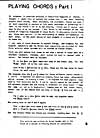 Playing Chords [for English, Anglo, and Maccann Duet]
Playing Chords [for English, Anglo, and Maccann Duet]
-
by Brian Hayden
-
"I would like to explain the system that I use when teaching
players about chords, their structure, and placement. Chords are
what I am most requested to explain at folk music workshops or
gatherings as I tend to use chords a lot in my own playing." (From
the introduction.)
Includes a novel notation for chords which is used elsewhere on this website.
As published in Concertina Magazine
(Australia) in three parts, 12-14 (1985), 12:5-7,
13:12-14, and 14:8-10; with corrections in 15-16 (1986), 15:14
and 16:1,6,9.
-
Posted 01 March 2004
-
» read full article in pdf
15 January 2004
-
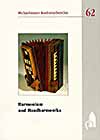 An Annotated Catalogue of Historic European Free-Reed Instruments from my Private Collection
An Annotated Catalogue of Historic European Free-Reed Instruments from my Private Collection
-
by Stephen Chambers
-
A very important paper describing nineteen instruments which illustrate key points in the development of
European free-reed instruments, with large color photographs.
This paper was presented at the 20th Musikinstrumentenbau-Symposium at Stiftung Kloster Michaelstein, held
19–21 November 1999, to coincide with an exhibition of the instruments.
As Published in Harmonium und Handharmonika (Michaelsteiner Konferenzberichte 62), edited by Monika Lustig,
Michaelstein, 2002, pp. 181-194.
-
Posted 15 January 2004
-
» read full article
-
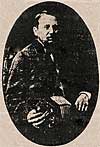 Recollections of the English Concertina, from 1844,
by George Jones, born February 29th 1832
Recollections of the English Concertina, from 1844,
by George Jones, born February 29th 1832
-
by George Jones
-
A full transcription of a manuscript now in the British Library, catalogued there as:
Additional Manuscript 71124 Q,
Recollections of the manufacture of the English concertina from 1844, by George Jones; [1912].
Presented by F. E. Butler, Esq., grandson of George Jones, 29 Aug. 1988, and incorporated in 1993.
ff. 331 x 207mm.
As published in Concertina Magazine, 13 (Winter 1985): 4–5, and
14 (Spring 1985): 4–7. Previously published (with heavy editorial additions) in
FreeReed: The Concertina Magazine, No. 16 (November 1973): 14–20.
A link is provided to PDF scanned versions of both publications.
-
Posted 15 January 2004
-
» read full article
-
» read 1985 publication in PDF
-
» read 1973 publication in PDF
-
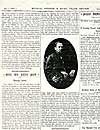 Men We Have Met: George Jones
Men We Have Met: George Jones
-
by George Jones
-
Historical sketch of the business career of George Jones, published at
the time he had just introduced his patent 42-key chromatic Anglo.
As published in Musical Opinion & Music Trade Review 88 (1 January 1885):203.
-
Posted 15 January 2004
-
» read full document in pdf
-
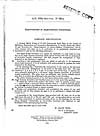 Improvements in Anglo-German Concertinas (1884)
Improvements in Anglo-German Concertinas (1884)
-
by George Jones
-
British Patent No. 9314 of 1884, 23 June 1884 with two figures. 2 pages.
Jones describes a 42-key Anglo concertina, which is a
fully chromatic Anglo “ to enable the performer to play music in every key”,
based on the older diatonic 10-key and 20-key German models.
-
Posted 15 January 2004
-
» read full document in pdf
Continue to 2007
Continue to 2006
Continue to 2005
Return to 2003
Return to 2002
Return to 2001
Have feedback on this article?
Send it to the author.
Reprinted from the Concertina Library
http://www.concertina.com
© Copyright 2000– by Robert Gaskins
|
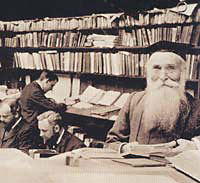
Concertina Library archives
can be kept in the space
used up to 1915 by
James Murray to house
materials for his Oxford
English Dictionary project.
Subscribe to receive occasional
email when new items are added.
|







